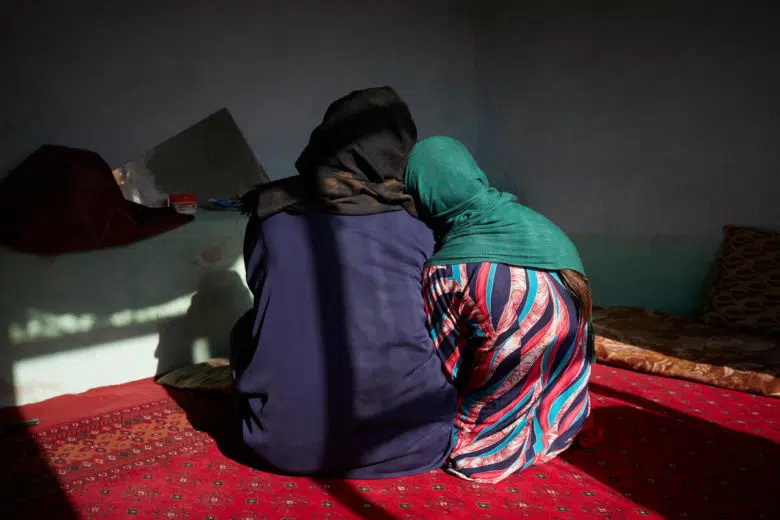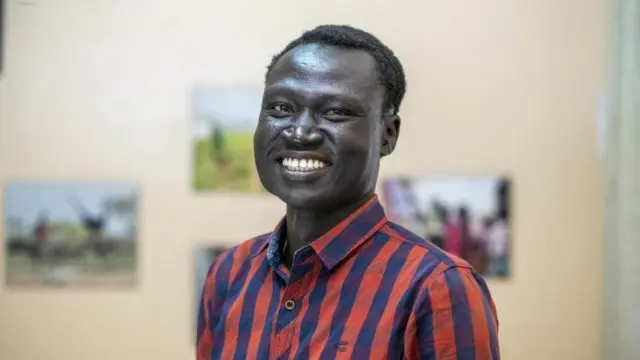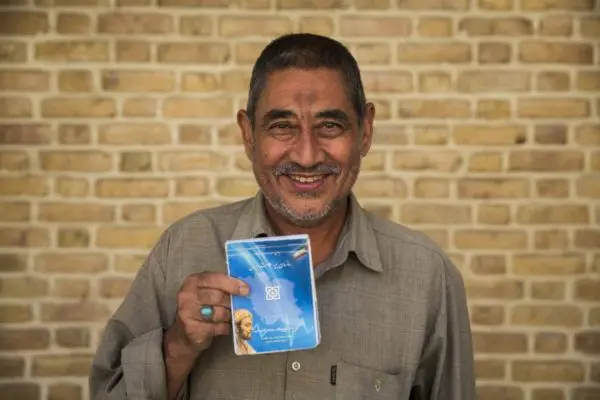
Farishta* and her 10-year-old daughter Rehana* in their temporary home in Kabul. © UNHCR/Andrew McConnell
UNHCR will continue to step up its response in Afghanistan as the situation on the ground continues to deteriorate after a tumultuous year.
The country was already facing a number of crippling crises before the Taliban took power in August of 2021. A severe drought was withering crops, and the socio-economic impacts of the COVID-19 pandemic had led to increased poverty. Nearly 700,000 people have been forced from their homes in Afghanistan since the beginning of the year 2021 due to conflict, bringing it to a total of 3.4 million displaced by conflict inside Afghanistan as of December 2021.
Thanks to the support of generous donors, this past year UNHCR assisted 1.1 million displaced Afghans in all areas of the country. Emergency supplies were delivered including high-thermal blankets, core relief items and emergency winter cash assistance. UNHCR also helped three million people with improved access to infrastructure and services.
Afghanistan remains one of the most complex humanitarian situations in the world and one of the largest displacement crises in modern history.
The humanitarian crisis continues to escalate with hunger reaching unprecedented levels. Further, a lack of insulated shelters, warm clothes, insufficient fuel for heating, and inadequate amounts of medical supplies are among the additional challenges the forcibly displaced are facing, with these difficulties exacerbated as temperatures dipped in the winter months.
With continued donor support, UNHCR will ramp up its response to those displaced with protection, core relief items, shelter, cash and other forms of assistance, while continuing to support needs around return and reintegration.
A Story of One Family
Farishta* and her 10-year-old daughter Rehana* (names changed for protection reasons), are seen in the image above, in their temporary home in Kabul. Farishta is 28-years-old and has two children. The family is originally from the northern province of Takhar. Her late husband, a member of the Taliban, abducted her and forced her into marriage. He was killed 10 years ago in fighting. With her parents and other siblings – about 20 in all – they fled to Kabul in July as the Taliban advanced, heading for Iran. Most of the family are now in Iran but Farishta could not afford the cost of travelling across the border. Farishta and her children returned to Kabul where they received assistance from UNHCR.
PLEASE DONATE TO SUPPORT AFGHAN REFUGEES
Originally published by: UNHCR Canada 2 St. Clair Avenue West, Suite 802, Toronto, Ontario M4V 1L5.





